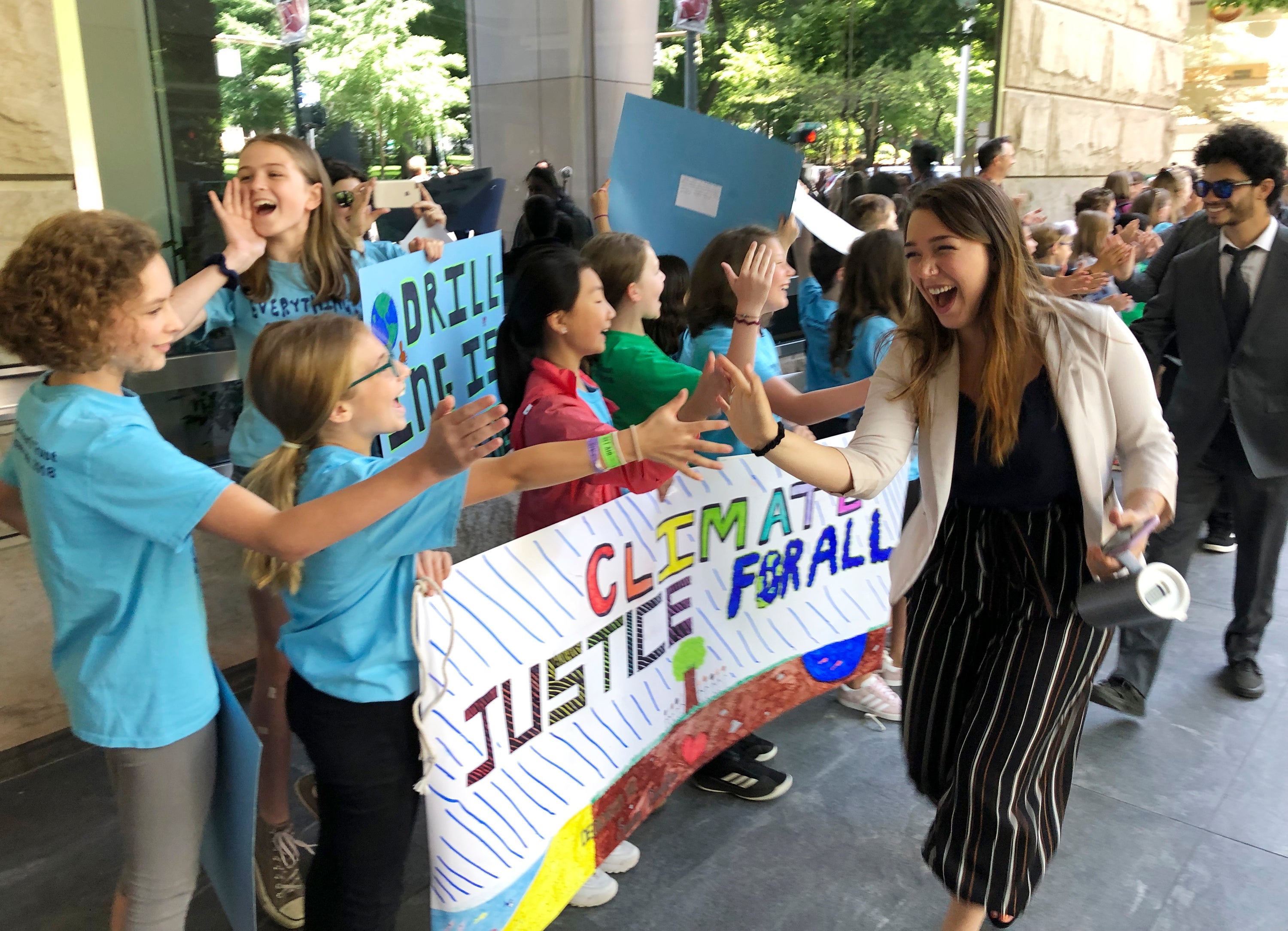Oregon youths’ climate lawsuit against US government can proceed to trial, judge rules
A federal judge has ruled that a lawsuit brought by young Oregon-based climate activists can proceed to trial

Your support helps us to tell the story
From reproductive rights to climate change to Big Tech, The Independent is on the ground when the story is developing. Whether it's investigating the financials of Elon Musk's pro-Trump PAC or producing our latest documentary, 'The A Word', which shines a light on the American women fighting for reproductive rights, we know how important it is to parse out the facts from the messaging.
At such a critical moment in US history, we need reporters on the ground. Your donation allows us to keep sending journalists to speak to both sides of the story.
The Independent is trusted by Americans across the entire political spectrum. And unlike many other quality news outlets, we choose not to lock Americans out of our reporting and analysis with paywalls. We believe quality journalism should be available to everyone, paid for by those who can afford it.
Your support makes all the difference.A federal judge ruled on Thursday that a lawsuit brought by young Oregon-based climate activists can proceed to trial years after they first filed the lawsuit in an attempt to hold the nation’s leadership accountable for its role in climate change.
U.S. District Court Judge Ann Aiken ruled that the plaintiffs can amend their case, known as Juliana v. United States, and go to trial. A previous trial was halted by U.S. Supreme Court Chief Justice John Roberts days before it was to begin in 2018.
Aiken wrote in her decision, “It is a foundational doctrine that when government conduct catastrophically harms American citizens, the judiciary is constitutionally required to perform its independent role and determine whether the challenged conduct, not exclusively committed to any branch by the Constitution, is unconstitutional.”
The 21 plaintiffs, who were between the ages of 8 and 18 when the lawsuit was filed in 2015, will move forward on the question of whether the federal government’s fossil fuel-based energy system, and resulting climate destabilization, is unconstitutional.
“Today’s ruling from Judge Aiken is our legal system working the way it should: a fair and well-reasoned application of the law in a vitally important constitutional case where children’s lives are at stake,” the plaintiffs’ attorney, Julia Olson, said in a statement.
The plaintiffs alleged in the original lawsuit that they have a constitutional right to a climate that sustains life and that the U.S. government’s actions have encouraged a fossil fuel economy despite scientific warnings about global warming.
Aiken ruled in 2016 that the case could proceed to trial, but the lawsuit was challenged repeatedly in federal court by the Obama and Trump administrations.
A three-member panel of the 9th U.S. Circuit Court of Appeals dismissed the case in 2020 after finding that Aiken lacked the power to order or design a climate recovery plan sought in the lawsuit.
The plaintiffs then filed an amended complaint asking to change their lawsuit to seek a ruling that the nation’s fossil fuel-based energy system is unconstitutional.
A message to the U.S. Department of Justice in Washington, D.C., seeking comment was not immediately returned.
The first youth climate change lawsuit to reach trial in the U.S. is set to begin June 12 in Montana. That case was brought in 2020 by attorneys for the environmental group Our Children’s Trust, which brought the Oregon case and has filed climate lawsuits in every state on behalf of young plaintiffs since 2010.
In the meantime, a study published this week said Earth has pushed past seven out of eight scientifically established safety limits and into “the danger zone,” for an overheating planet and for the well-being of people living on it.